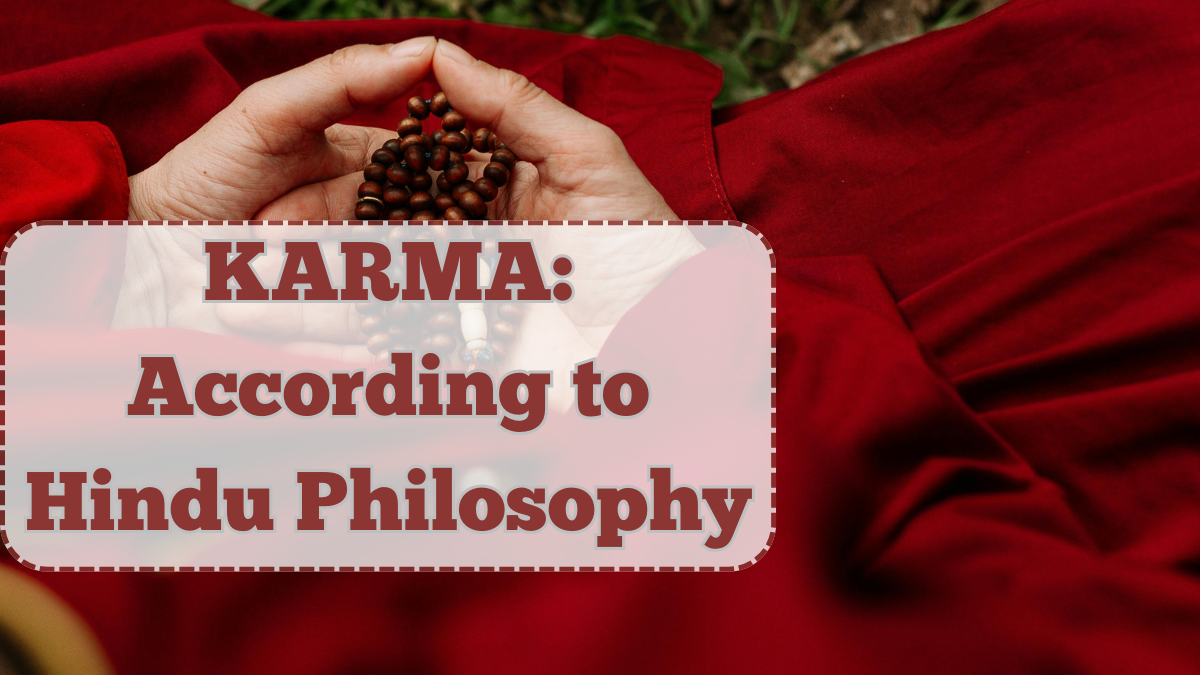In everyday conversations, we often hear phrases like “What goes around comes around.” But in the deeper layers of Hindu beliefs, this idea is far more profound. The meaning of karma in Hinduism goes beyond punishment or reward—it is the divine law of cause and effect that governs both our spiritual and worldly journey.
Karma is not fate. It is not destiny. It is your own doing—your thoughts, words, and actions—that shape the experiences you face today and tomorrow. Rooted in ancient scriptures like the Vedas and the Bhagavad Gita, this law of spiritual justice offers clarity on why we suffer, succeed, struggle, or find peace.

The Real Meaning of Karma
The word Karma comes from the Sanskrit root ‘Kri’, which means “to act.” In Hindu beliefs, karma refers to the actions you perform and the results they produce. Every action—intentional or unintentional—creates energy, which eventually returns to you.
There are three types of karma:
-
Sanchita Karma – Accumulated past actions
-
Prarabdha Karma – Present-life consequences of past karma
-
Kriyamana Karma – Current actions creating future results
Understanding these can help us take responsibility for our lives and see our present not as a punishment, but as a reflection of our choices.
Karma and the Cycle of Life
The karma theory explained in Hindu texts is closely linked with the concept of rebirth (reincarnation). According to this philosophy:
-
Good deeds lead to higher births or pleasant life experiences
-
Harmful deeds can result in suffering or spiritual stagnation
-
Liberation (moksha) is achieved by neutralizing karma and realizing the Self
The law of karma ensures that nothing you do—good or bad—goes unnoticed in the grand scheme of spiritual evolution.
| Type of Karma | Description |
|---|---|
| Sanchita | Stored karma from all past lives |
| Prarabdha | The portion of Sanchita being experienced now |
| Kriyamana | Karma you’re creating with present actions |
Thus, karma is not just about justice; it’s about balance and growth in alignment with spirituality.
Karma in Daily Life
Understanding the meaning of karma in Hinduism can empower us to make better decisions. Every choice we make—what we eat, how we speak, how we treat others—affects our karmic footprint.
Daily applications of karma:
-
Speaking with kindness creates harmony
-
Helping others brings joy and purpose
-
Dishonesty, hatred, or greed create inner unrest and outer chaos
The beauty of the karma theory explained in Hinduism is that it puts control in your hands. You are not a victim; you are a creator of your destiny.
Letting Go and Moving Forward
Holding onto guilt or blame blocks growth. The Gita teaches that when actions are done without attachment to the outcome, they no longer bind you. This is called Karma Yoga—acting with full responsibility, yet letting go of results.
Practicing this form of spiritual justice allows you to:
-
Release the past without regret
-
Act with integrity in the present
-
Step into the future with courage and peace
Ultimately, karma is about conscious living. It teaches that everything you do matters, but what matters more is how you evolve through it.
FAQs
What does karma mean in Hinduism?
Karma in Hinduism means “action” and refers to the universal law of cause and effect. Every action creates consequences, and these shape our present and future experiences.
Is karma the same as fate?
No. Fate implies lack of control, while karma is self-created. Your current life is the result of past actions, but you can change your future through conscious actions today.
How can I reduce bad karma?
You can reduce bad karma by practicing good deeds, honesty, compassion, and by living with awareness. Meditation and selfless service also help neutralize negative karmic effects.
Does karma only apply to major actions?
No. Even small actions like your thoughts, gestures, or words carry karmic energy. Consistency in kindness and truthfulness builds good karma over time.
Can karma be changed?
Yes. The present moment always offers a chance to change your karmic direction. Living mindfully and making ethical choices transforms future outcomes.
Click here to know more.
